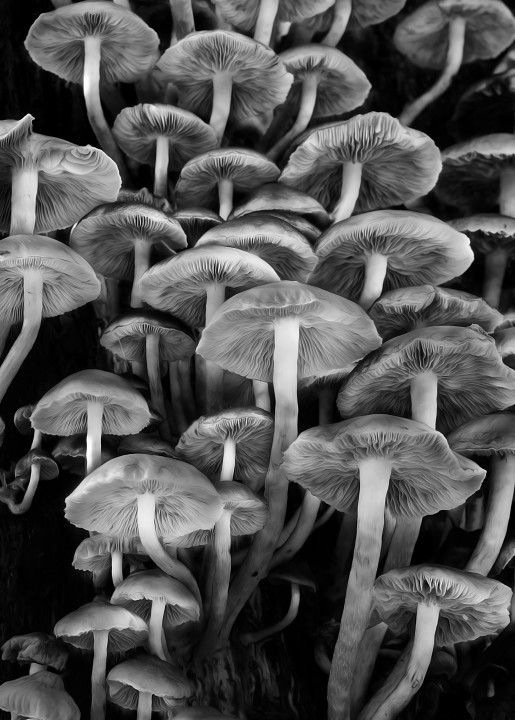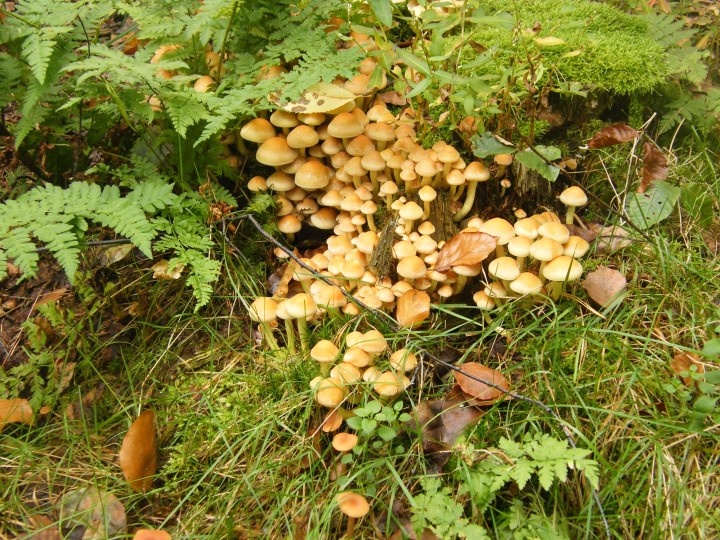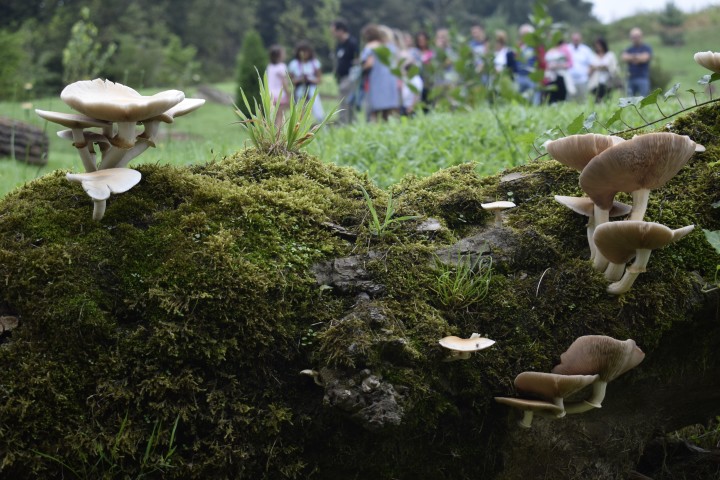
The Rise of Microdosing and Its Potential Impact on Mental Health
Introduction
The groundbreaking field of microdosing and its potential impact on mental health are explored in this article. By harnessing the power of psilocybin, researchers are uncovering promising therapeutic applications in treating various mental health conditions. These advancements have the potential to revolutionize the way we approach mental health treatment and offer new hope for individuals suffering from these conditions.
Furthermore, the rise of microdosing has sparked a wave of interest and speculation, with many individuals seeking alternative approaches to improve their mental well-being. With its ability to enhance creativity, focus, and overall cognitive function in sub-perceptual doses, the benefits of microdosing with psilocybin holds immense promise as a potential tool for self-improvement and personal growth.
However, it is important to note that the effects of microdosing can vary greatly between individuals, and further research is needed to fully understand its mechanisms of action and long-term impacts. Additionally, the legal status of psilocybin and the hurdles associated with conducting clinical trials hinder the widespread adoption of microdosing as a mainstream treatment option.
In light of these factors, it is crucial for individuals considering microdosing to approach it with caution and seek professional guidance. Consulting a qualified healthcare provider can help determine if microdosing is a suitable option based on individual needs and circumstances. Additionally, incorporating mindfulness practices, such as meditation and therapy, alongside microdosing can promote a holistic approach to mental health and enhance the potential benefits of this emerging therapy.
The Latest Study: Examining The Therapeutic Potential of Psilocybin Microdosing
A groundbreaking study examines the therapeutic benefits of psilocybin microdosing. This latest research delves into the potential positive effects of using small doses of psilocybin for mental health treatment. By investigating the therapeutic potential of microdosing, researchers aim to explore new avenues for improving mental well-being. The study explores the potential benefits of this technique in offering innovative solutions for mental health challenges. As this study progresses, it seeks to uncover unique details and insights into the therapeutic effects of psilocybin microdosing.
One such story involves a patient who had struggled with depression for years and found limited success with traditional treatments. Upon participating in a psilocybin microdosing study, they experienced a remarkable improvement in their mental health, with reduced symptoms and an overall increase in well-being. This powerful account highlights the promising potential of psilocybin microdosing as a new frontier in mental health treatment. With ongoing research in this area, more stories like this may emerge, providing hope for those in need of effective therapies.

History and Context: From Large Dose Psychedelic Use to Microdosing
From the era of high-dose psychedelic consumption to the emerging trend of microdosing, the history and context of psilocybin reveal a paradigm shift in mental health treatment. Delving into this transformation sheds light on the evolution of psychedelic therapy and its potential benefits.
The journey from large-dose psychedelic use to microdosing represents a significant breakthrough in mental health treatment. As research on psilocybin continues to expand, scientists are exploring the therapeutic potential of microdosing, which involves consuming sub-perceptual doses of the psychedelic compound. This method allows individuals to experience subtle cognitive enhancements and mood improvements without the intense hallucinogenic effects associated with larger doses.
Unique details reveal the intriguing nuances of microdosing. The approach has gained popularity among professionals seeking enhanced creativity and focus, and individuals with depression or anxiety looking for alternative treatment options. With ongoing research, the potential benefits and long-term effects of microdosing are being further elucidated, offering hope for a new frontier in mental health treatment.
Immerse yourself in the possibilities that microdosing presents. By exploring this cutting-edge therapy, individuals can open doors to enhanced creativity, increased productivity, and improved mental well-being. Don’t miss out on the potential transformative effects microdosing can offer, as it heralds a promising future in mental health treatment.
The Microdose.me Project: International Collaboration For Studying Microdosing
The Microdose.me Project is a global initiative focused on investigating the effects of microdosing. This international collaboration brings together researchers and experts from different fields to study the practice of microdosing in a comprehensive and systematic manner. By pooling resources and knowledge, the project aims to generate valuable insights into the potential therapeutic benefits and risks associated with microdosing.
Through rigorous scientific methods and data analysis, the Microdose.me Project is paving the way for a deeper understanding of this emerging field and its applications in mental health treatment.
The research conducted under the Microdose.me Project is guided by a shared goal of gathering valuable data and evidence regarding the effects and outcomes of microdosing. The collaboration among international experts ensures a diverse range of perspectives, expertise, and resources, which are crucial for conducting a thorough and comprehensive study. Through this project, researchers aim to explore the various factors that may influence the efficacy of microdosing, such as dosage, frequency, and individual differences.
By collecting and analyzing data from participants around the world, the Microdose.me Project aims to contribute to the growing body of knowledge surrounding microdosing and its potential implications for mental health treatment.
One unique aspect of the Microdose.me Project is its emphasis on a data-driven approach. Researchers are not only interested in studying the subjective experiences of microdosers but also in collecting objective data to support their findings. This approach involves the use of validated psychological assessments, cognitive tests, and other measures to evaluate the impact of microdosing on various aspects of mental health.
By incorporating both subjective and objective data, the project aims to provide a comprehensive and holistic understanding of the effects of microdosing.
Pro Tip: If you are interested in participating in the Microdose.me Project, make sure to follow the guidelines and protocols provided by the researchers. Your contribution can help advance the understanding of microdosing and its potential benefits in mental health treatment.

Implications and Further Research: Exploring The Relationship Between Microdosing, Mood, and Mental Health
Psilocybin Microdosing: A New Frontier in Mental Health Treatment offers valuable insights into the implications and further research surrounding the relationship between microdosing, mood, and mental health. This emerging field of study explores the potential benefits of using small doses of psilocybin, the active compound found in magic mushrooms, as a treatment for various mental health conditions.
Research investigating the effects of microdosing on mood and mental health has gained significant attention in recent years. Preliminary findings suggest that microdosing may have positive effects, such as improved mood, increased creativity, and enhanced cognitive function. However, further research is needed to establish the full extent of these potential benefits and to understand the mechanisms underlying them.
One unique aspect of the research on microdosing is its focus on sub-therapeutic doses of psilocybin. Unlike traditional psychedelic experiences, microdosing involves taking very small quantities of the substance, below the threshold for hallucinatory effects. This approach allows individuals to potentially experience the benefits of psilocybin without the intense, mind-altering effects associated with higher doses.
To expand the understanding of the relationship between microdosing, mood, and mental health, future research could explore various factors. These might include investigating the optimal dosing regimens, examining the long-term effects of microdosing, and identifying potential contraindications or risks associated with this practice. Additionally, exploring the underlying neurobiological mechanisms through neuroimaging studies could provide insights into how microdosing affects brain function and connectivity.
To further support the exploration of microdosing as a mental health treatment, it is essential to establish rigorous clinical trials that adhere to ethical guidelines and involve diverse patient populations. A multidisciplinary approach that combines the expertise of psychiatrists, psychologists, pharmacologists, and neuroscientists will be crucial in conducting comprehensive studies and interpreting the findings accurately.
By conducting well-designed research and fostering collaboration across scientific disciplines, we can gain a deeper understanding of the implications and potential benefits of microdosing on mood and mental health. Such knowledge can contribute to the development of innovative treatment approaches and expand the options available for individuals seeking effective and safe mental health interventions.
Conclusion: The Potential of Psilocybin Microdosing as an Alternative Approach in Mental Health Treatment
Psilocybin microdosing holds promise as an innovative method for treating mental health issues. This alternative approach offers potential benefits in effectively addressing various mental health conditions. Studies suggest that microdosing psilocybin can result in positive changes in mood, cognition, and overall well-being. Moreover, it offers a unique opportunity for individuals seeking alternative treatments for mental health disorders. By harnessing the therapeutic potential of psilocybin microdosing, mental health professionals can explore new avenues to enhance treatment outcomes and provide relief to individuals experiencing mental health challenges.

Some Facts About Psilocybin Microdosing: A New Frontier in Mental Health Treatment:
- ✅ Psilocybin microdosing has shown therapeutic potential in treating mental health conditions. (Source: Nature-Scientific Reports)
- ✅ A study involving 953 microdosers and a control group found that microdosers demonstrated greater improvements in mood, mental health, and psychomotor ability compared to the control group. (Source: UBC Okanagan)
- ✅ Psilocybin mushrooms are considered non-addictive and relatively non-toxic. (Source: UBC Okanagan)
- ✅ Microdosing involves regularly taking small amounts of psilocybin or LSD in doses that do not impair normal cognitive functioning. (Source: UBC Okanagan)
- ✅ Further research is needed to establish the nature of the relationship between microdosing, mood, and mental health, and to determine the direct effects of psilocybin. (Source: UBC Okanagan)
FAQs about Psilocybin Microdosing: A New Frontier In Mental Health Treatment
Q: What is psilocybin microdosing?
A: Psilocybin microdosing involves regularly taking small amounts (0.1 to 0.3 grams) of dried psilocybin mushrooms or LSD, in doses that do not impair normal cognitive functioning, three to five times a week.
Q: What are the potential therapeutic benefits of psilocybin microdosing?
A: Research suggests that psilocybin microdosing could lead to improved mood, reduced symptoms of depression, anxiety, and stress, as well as enhanced psychomotor ability. It has shown promise as a potential treatment for mental health disorders.
Q: How does psilocybin microdosing impact neurodegenerative disorders?
A: Psilocybin microdosing has the potential to act as a marker for neurodegenerative disorders, including Parkinson’s disease. Studies have shown that participants who microdose demonstrate greater improvements in psychomotor ability, which can be associated with better neurodegenerative outcomes.
Q: Was the use of psilocybin mushrooms an illicit substance in the past?
A: Yes, psilocybin mushrooms were labeled as an illicit substance during the American-led “war on drugs”. However, there is now growing interest in exploring their therapeutic potential, particularly in the form of microdoses that minimally interfere with daily functioning.
Q: Are psilocybin mushrooms considered non-addictive and non-toxic?
A: Psilocybin mushrooms are generally considered non-addictive and relatively non-toxic, especially when compared to substances like tobacco, opioids, and alcohol. However, further research is still needed to fully understand their long-term effects and potential risks.
Q: What is a longitudinal study and why is it important in the context of psilocybin microdosing?
A: A longitudinal study is a research design that follows the same participants over an extended period of time, allowing for the examination of consistency of effects across various factors such as age, gender, and mental health. In the case of psilocybin microdosing, a longitudinal study provides valuable insights into its potential benefits and impacts on mental health outcomes.
Visit the House of Shrooms to start your microdosing journey today.
